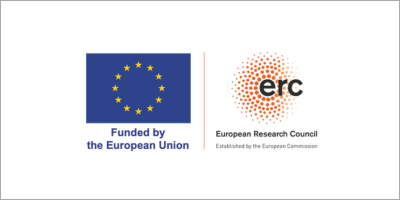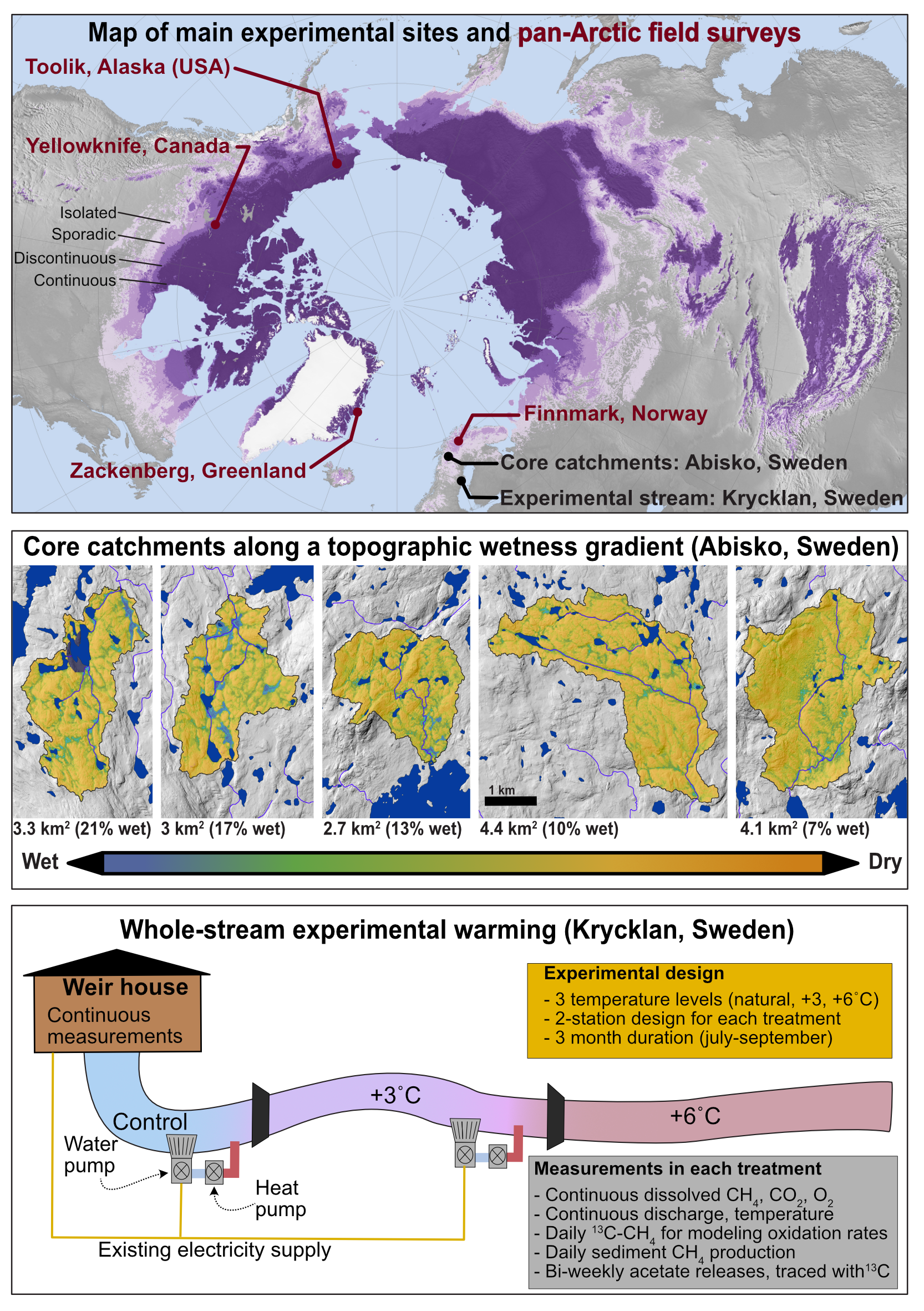ARIMETH
Staff: Gerard Rocher-Ros, Luis Jose Fernando, Ying Wang
Collaborators:
Jan Karlsson (EMG), Ryan Sponseller (UmU), Cristian Gudasz (EMG), Hjalmar Laudon (SLU), Carolina Olid (UB), Peter Raymond (Yale), Emily Stanley (UW-Madison), Zeli Tan (PNNL), Sarahi Garcia (Oldemburg U), Tamara Harms (UC-Riverside), Nora Casson (U. Winnipeg)
Funding: 
This project, funded by an ERC Starting grant (1.9M €), has the goal is to study the methane dynamics in Arctic rivers from an ecosystem ecology perspective, and develop a model to predict river methane emissions across the Arctic. There is funding for postdoc positions so you are welcome to reach out for further details.
Constraining the global methane (CH4) budget is urgently needed to predict future climate. Rivers are an important source of CH4 to the atmosphere, with surprisingly high rates of emissions in northern regions. The high emissions from Arctic rivers are driven by lateral inputs from surrounding land and are very sensitive to climate, but are also challenging to capture.
Given severe impacts of ongoing climate change at high latitudes, CH4 emissions from Arctic rivers have a strong potential to further increase. Yet, we are unable to understand and predict future river emissions because we lack process-based models that represent CH4 inputs and emissions from river ecosystems. This limitation arises from our poor understanding of river Arctic CH4 cycling in general, with a lack of mechanistic studies at local and landscapes scales that are foundational to advancing process-based models.
ARIMETH aims to address this issue, by initially generating the mechanistic understanding of Arctic riverine CH4 cycling. Subsequently, the project will develop the modelling tools to predict current and future CH4 emissions. These goals will be achieved through a comprehensive and multi-scale research program, including a whole-stream warming experiment, high-resolution measurements with state-of-the-art CH4 sensors coupled with remote sensing data, pan-Arctic sampling campaigns to identify CH4 sources using carbon radioisotopes, and finally developing deep-learning mechanistic models for river CH4 emissions.
The outcomes of ARIMETH will offer insights into river CH4 cycling, from the scale of individual rivers, to surrounding catchments, to the pan-Arctic. Finally, ARIMETH will determine if CH4 emissions from Arctic freshwaters are underestimated when lateral fluxes to rivers and emissions are not accounted for. This is critical to predict future trajectories of global warming, as well as to discover unrecognized feedbacks between the terrestrial-aquatic-atmospheric compartments in the broad carbon cycle.
